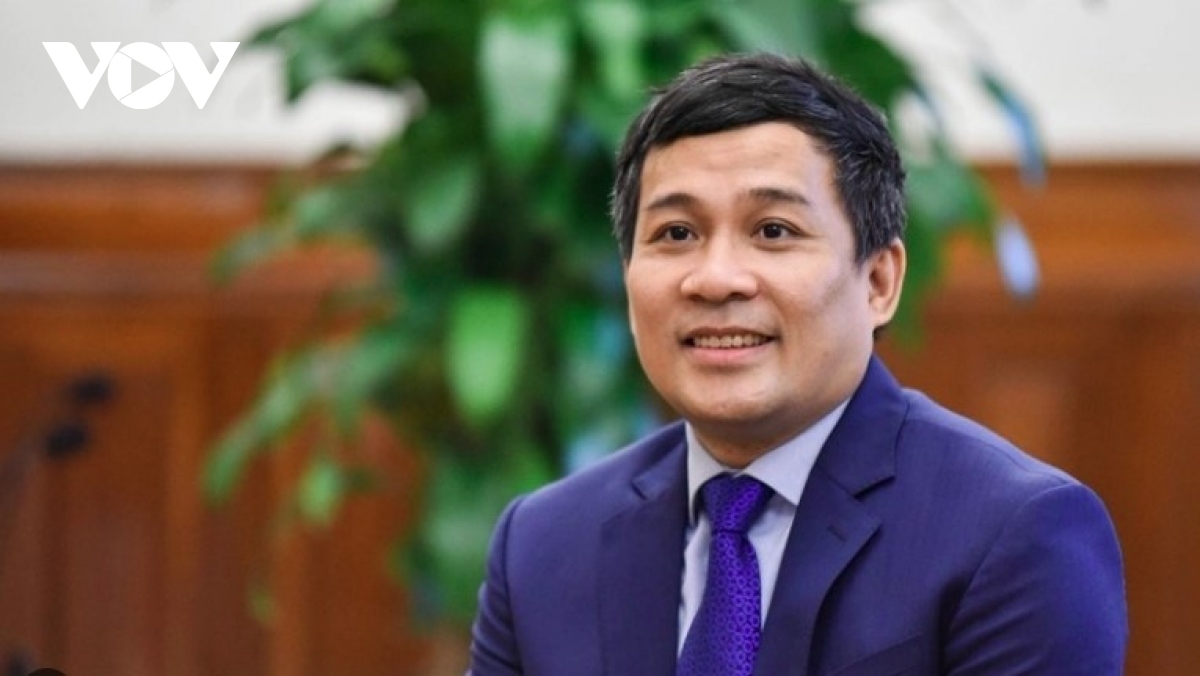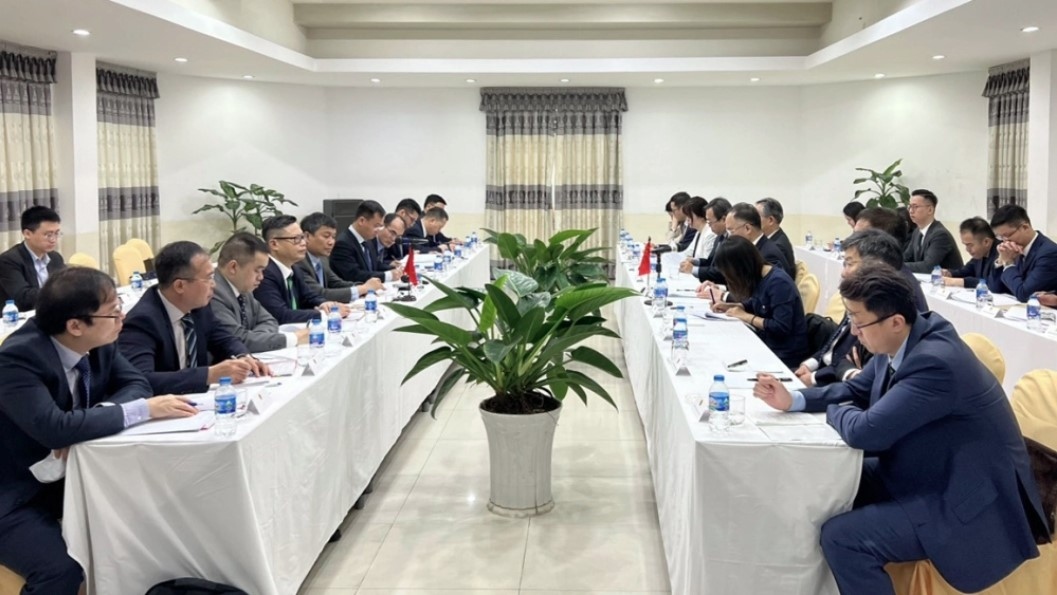Vietnam, China well realize high-level common perceptions
VOV.VN - Permanent Deputy Minister of Foreign Affairs Nguyen Minh Vu and Chinese Assistant Minister of Foreign Affairs Nong Rong discussed a range of measures aimed at materializing high-level common perceptions between the two nations during talks held on February 4 in Ho Chi Minh City.

Both sides rejoiced over the positive development pace recorded in the bilateral relationship, as well as its milestones over the past time, especially the visit to China made by Party General Secretary Nguyen Phu Trong in October, 2022, and the state visit to Vietnam by Party General Secretary and President of China Xi Jinping in December, 2023.
They concentrated on how to concretize the joint statement on continuing to deepen and elevate the comprehensive strategic co-operative partnership between the two countries, as well as building a Vietnam-China community with a shared future that carries strategic significance.
The officials consented to intensify high-level exchanges, contacts, and visits, effectively implementing co-operation mechanisms between the two Parties and competently organizing the 16th meeting of the Vietnam-China Steering Committee for Bilateral Cooperation.
Both sides will also boost collaboration in national defence, security, external affairs, culture, education, tourism, and people-to-people exchanges, while expanding ties in economics, trade, and transport connectivity for the sake of their peoples and businesses.

They will also work together to better manage the common border line, whilst also satisfactorily addressing border issues lingering or emerging in line with their reached documents and agreements.
Deputy Minister Vu, who is also secretary general of the Steering Committee for Vietnam – China Bilateral Cooperation, suggested the two sides enhance their transport connectivity, especially roads and railways connecting northern Vietnamese provinces with China’s southern and southwestern regions.
He called on China to move to expand its import of Vietnamese agro-aquatic products and facilitate the establishment of Vietnamese trade promotion offices in Haikou, Chengdu, and Nanjing.
Deputy Minister Vu called for the two sides to make greater efforts to soon negotiating and signing a framework agreement on rice trade, while suggesting China support Vietnamese businesses which have received the national brand title in a bid to build distribution channels and develop brands in the neighbouring market.
He also suggested the two sides seek to expand collaboration in investment, direct relevant agencies, and enterprises to remove prolonged obstacles to a number of industrial projects, speed up the implementation of those in Vietnam using China’s non-refundable aid, and form a working group to ramp up tourism links.
The two countries should strive to bolster water resources co-operation, effectively and sustainably using Mekong River water resources for the legitimate interests of all parties, especially downstream countries, he continued.
Sharing these views, Assistant Minister Rong, who is also secretary general of the Steering Committee for China-Vietnam Bilateral Cooperation, affirmed that China remains ready to expand the import of high-quality agricultural products from the Vietnamese market and to accelerate the licensing process for the official import of Vietnamese fresh coconut, citrus fruits, and avocado.
He proposed the two sides push ahead with the building of the smart border gate model to improve customs clearance efficiency and ease goods congestion at border gates. This should be done whilst expanding co-operation in green development, the digital economy, and new energy development, thereby furthering both co-ordination and co-operation at regional and international multilateral forums.
The officials compared notes on maritime issues candidly and sincerely, emphasising the importance of maintaining peace and stability at sea amidst the complex development of the current international and regional situation.
The two sides concurred to effectively implement high-level common perceptions and the joint agreement on basic principles guiding the settlement of sea-related issues, carry forward negotiation mechanisms, and make efforts to control and better resolve differences at sea based on the sequential and gradual principle of easy first and hard later.
They will work together with ASEAN member states to fully and effectively implement the Declaration on the Conduct of Parties in the East Sea (DOC), striving to soon achieve an effective and substantive Code of Conduct in the East Sea (COC) in accordance with international law, especially the 1982 UN Convention on the Law of the Sea (1982 UNCLOS).
Permanent Deputy Minister Vu asked the two sides to respect each other's sovereignty, sovereign rights, and jurisdiction established in line with international law and the 1982 UNCLOS. This is along with preventing complex incidents affecting the bilateral relationship and properly dealing with issues regarding fishing vessels and fishermen as a contribution to peace and stability in the region.


